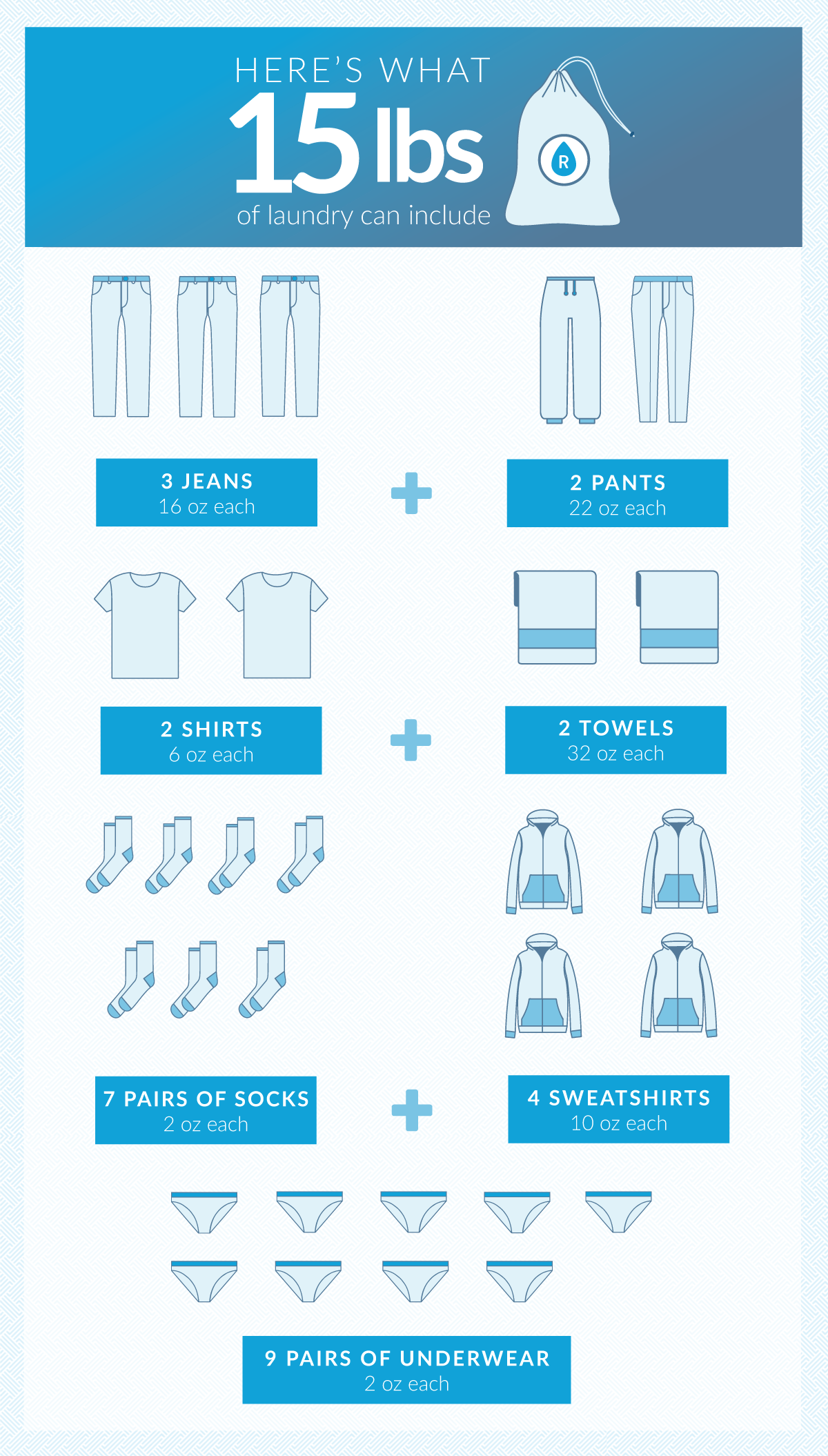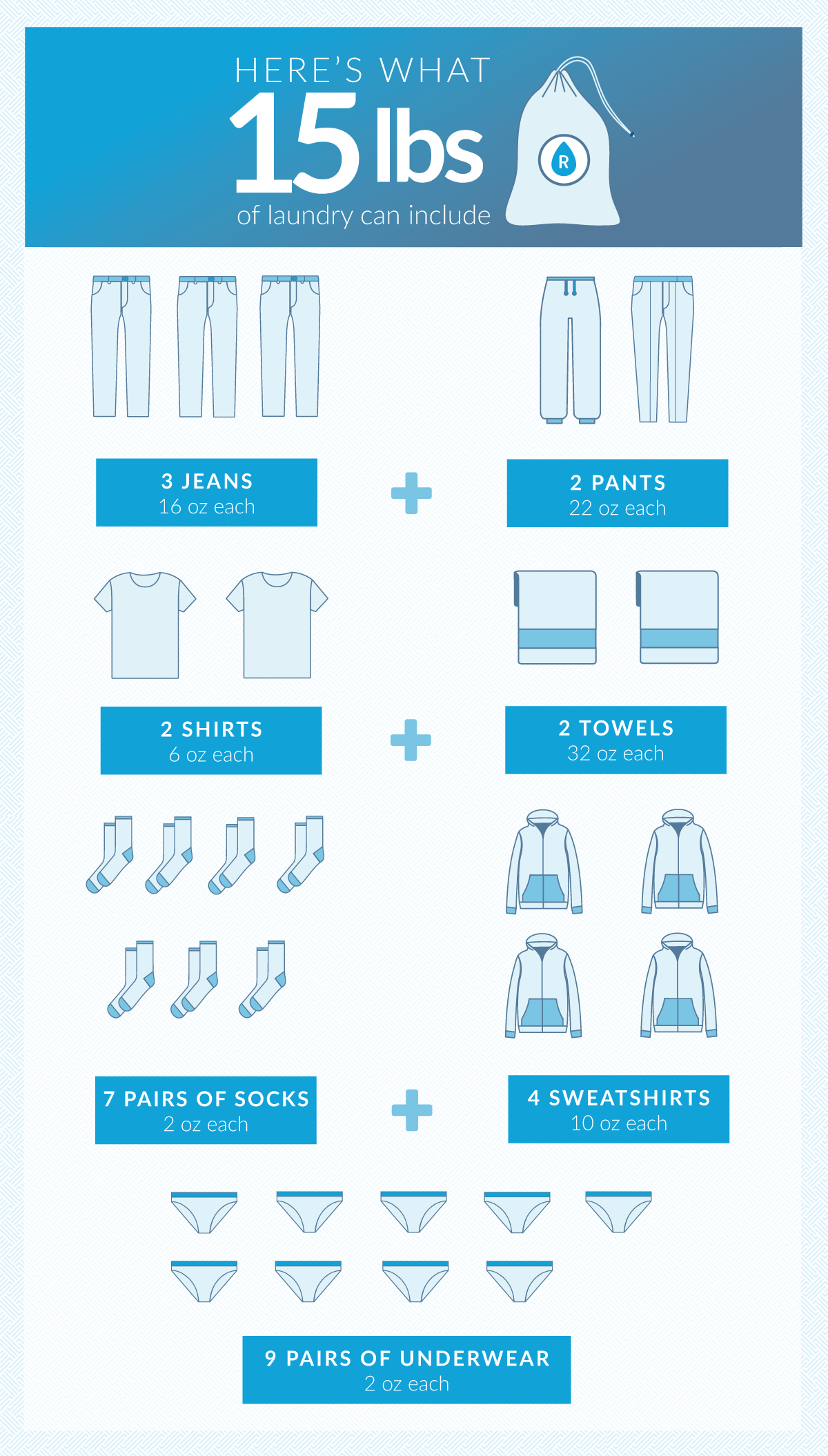Laundry is a never-ending chore that most of us can’t avoid. Have you ever wondered how much your laundry actually weighs? It may seem like a trivial question, but knowing the weight of your laundry can actually be quite useful.
From figuring out the capacity of your washing machine to understanding how much detergent to use, knowing the weight of your laundry can be a valuable piece of knowledge. In this article, we will explore the average weight of a load of laundry and how you can determine the weight of your own laundry. So, let’s dive in and discover the secrets of laundry weight!
An average load of laundry weighs around 8-10 pounds (3.6-4.5 kg) for a full-sized machine. However, the weight can vary depending on the size of the load, the type of fabric, and the water content in the clothes. It’s important not to overload your washing machine as it can affect the cleaning performance and damage the machine.

How Much Does an Average Load of Laundry Weigh?
Doing laundry is an essential part of everyday life. Whether you live alone or with family members, you must do laundry at some point. However, many people don’t know the weight of an average load of laundry. The weight of laundry matters because it affects the amount of detergent and water you need to use. In this article, we’ll discuss how much an average load of laundry weighs.
What is the Weight of an Average Load of Laundry?
When it comes to laundry, the weight of an average load can vary depending on the type of machine you use. A front-loading washing machine can hold about 13 pounds of laundry, while a top-loading machine can hold up to 21 pounds of laundry. However, it’s important to note that you should never overload your washing machine as it can damage the machine and affect the quality of the wash.
When you’re doing laundry, it’s essential to weigh your clothes to ensure you don’t overload the machine. Overloading the machine can affect the wash quality, and your clothes may not get as clean as they should. It’s also essential to use the right amount of detergent based on the weight of your laundry.
Why is Knowing the Weight of Your Laundry Important?
Knowing the weight of your laundry is essential for several reasons. Firstly, it helps you avoid overloading the machine, which can damage the machine and affect the wash quality. Secondly, it helps you use the right amount of detergent, which can save you money in the long run. Using too much detergent can result in wasted detergent and money.
Moreover, knowing the weight of your laundry can help you save water. Overloading your washing machine can result in using more water than necessary, which is not environmentally friendly. By knowing the weight of your laundry, you can adjust the water level accordingly and save water.
How to Weigh Your Laundry?
Weighing your laundry is simple and easy. All you need is a bathroom scale. First, turn on the scale and make sure it’s calibrated to zero. Then, place your laundry basket on the scale and weigh it. Next, empty the basket and weigh it again. The difference between the two weights is the weight of your laundry.
It’s also essential to note that you should weigh your laundry without including the weight of the basket. You can also use a kitchen scale to weigh smaller loads of laundry.
Benefits of Knowing the Weight of Your Laundry
Knowing the weight of your laundry can have several benefits. Firstly, it helps you avoid overloading the machine, which can damage the machine and affect the wash quality. Secondly, it helps you save money by using the right amount of detergent. Lastly, it helps you save water by adjusting the water level according to the weight of your laundry.
Conclusion
In conclusion, knowing the weight of your laundry is essential for maintaining the quality of your wash and saving money and water. We hope this article has helped you understand the weight of an average load of laundry and why it’s important to weigh your laundry. Remember to always weigh your laundry and use the right amount of detergent and water to maintain the quality of your wash.
Frequently Asked Questions
Doing laundry is a basic household chore that everyone needs to do. However, not everyone knows how much an average load of laundry weighs. Here are some frequently asked questions about laundry weight:
What is the average weight of a load of laundry?
The average weight of a load of laundry is around 8-10 pounds. However, this can vary depending on the type of clothing, the size of the load, and the washing machine’s capacity. A small load can weigh around 3-4 pounds, while a large load can weigh up to 20-30 pounds.
It’s important to note that overloading your washing machine can damage it and prevent your clothes from getting properly cleaned. It’s best to follow the manufacturer’s guidelines for your specific machine.
How can you measure the weight of your laundry?
You can measure the weight of your laundry by using a bathroom scale. First, weigh yourself on the scale and record your weight. Then, pick up your laundry basket and stand on the scale again. Subtract your weight from the combined weight of yourself and the laundry basket to get the weight of your laundry.
Another way to estimate the weight of your laundry is to count the number of items you’re washing. A typical load of laundry consists of 12-16 items, which can weigh around 8-10 pounds.
Why is it important to know the weight of your laundry?
Knowing the weight of your laundry is important because it can help you determine the correct amount of detergent to use. Using too much detergent can lead to soap buildup and damage your clothes, while using too little can leave your clothes dirty.
Additionally, knowing the weight of your laundry can help you save money on energy costs. Overloading your washing machine can cause it to use more energy and water than necessary, which can increase your utility bills.
What factors can affect the weight of a load of laundry?
The weight of a load of laundry can be affected by several factors, including the type of clothing, the size of the load, and the washing machine’s capacity. Heavy items like towels and jeans can add more weight to the load, while lightweight items like t-shirts and socks can be less weighty.
The size of the load is also important. A small load will weigh less than a large load, and overloading the machine can damage it and prevent your clothes from getting properly cleaned.
How often should you wash your clothes?
How often you should wash your clothes depends on several factors, including how often you wear them, how much you sweat, and what activities you do in them. Generally, it’s recommended to wash your clothes after every use, especially if they’re sweaty or dirty.
However, some items like jeans and sweaters can be worn multiple times before needing to be washed. It’s important to follow the care instructions on your clothing labels to ensure that they stay clean and in good condition.
Laundry 101: Washing Machine Capacity and Load Size Guide
In conclusion, the weight of an average load of laundry can vary depending on the type of clothing and the washing machine used. However, a typical load of laundry can weigh anywhere from 8-12 pounds. It’s important to keep in mind that overloading a washing machine can cause damage to the machine and result in clothes not being properly cleaned.
Knowing the weight of your laundry can come in handy when it comes to determining how much detergent to use or how many clothes you can wash at once. By keeping track of the weight of your laundry, you can also ensure that you’re not overloading your washing machine and potentially causing damage.
Overall, understanding the weight of your laundry can make laundry day a little easier and more efficient. So the next time you’re doing a load of laundry, take a moment to consider how much your clothes weigh and adjust accordingly for the best results.

